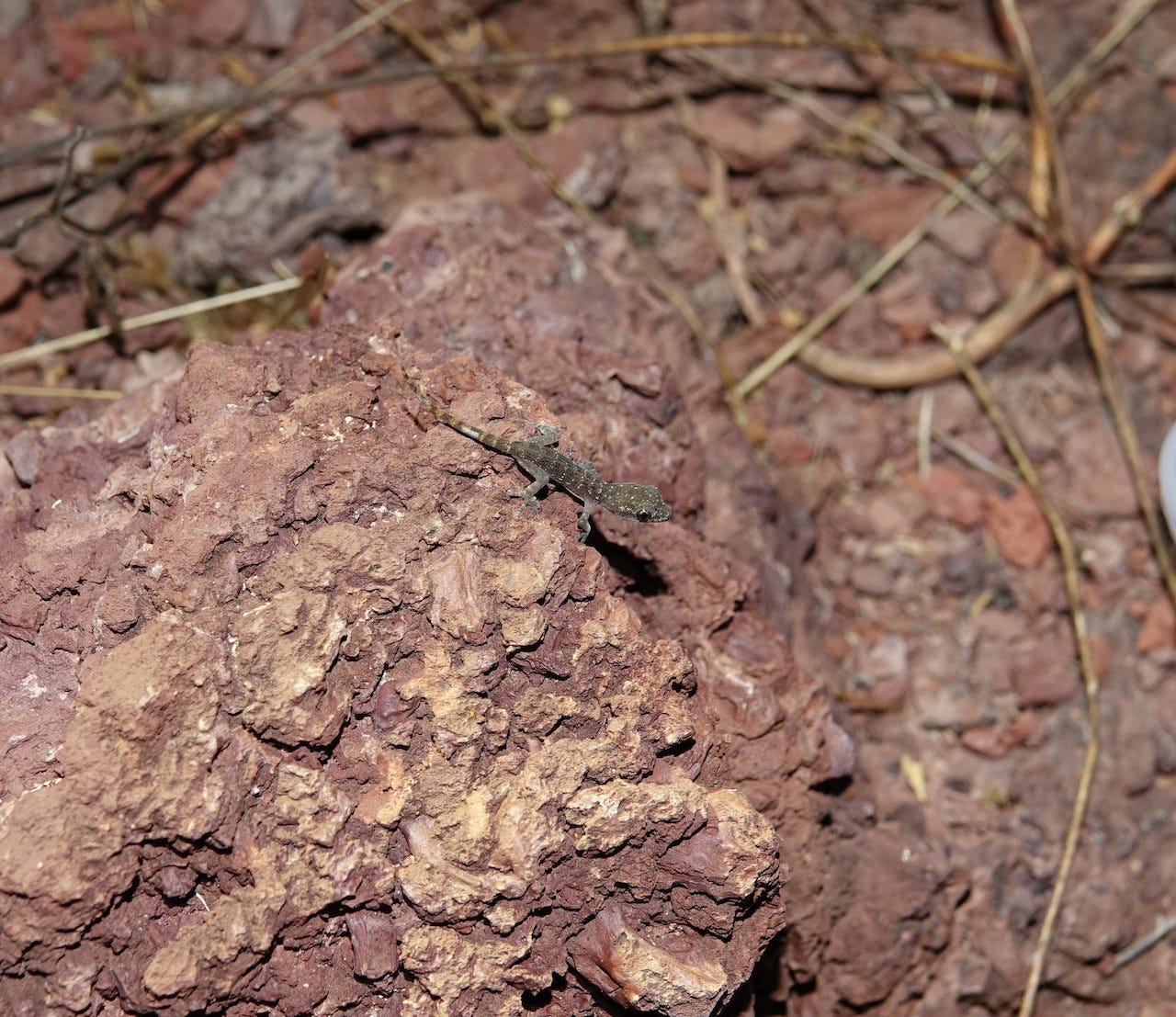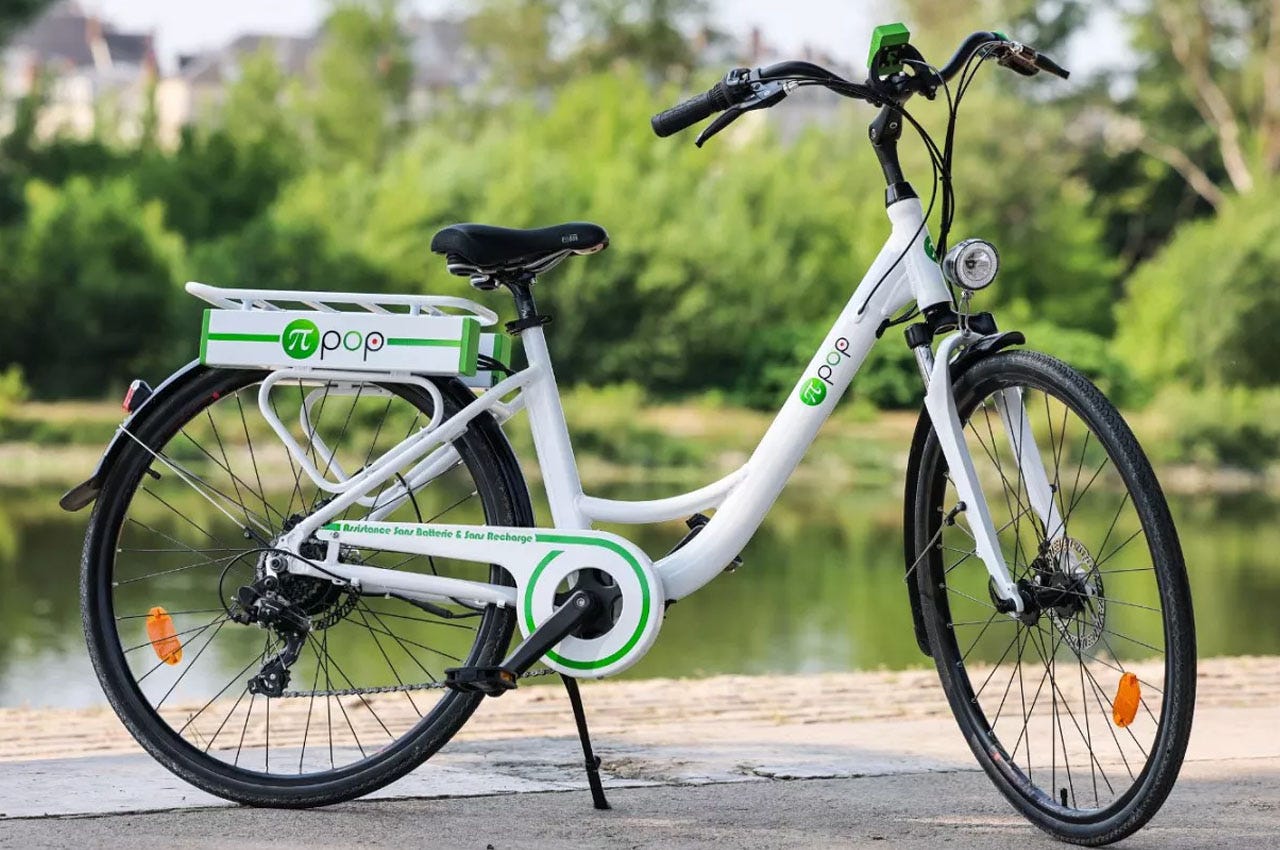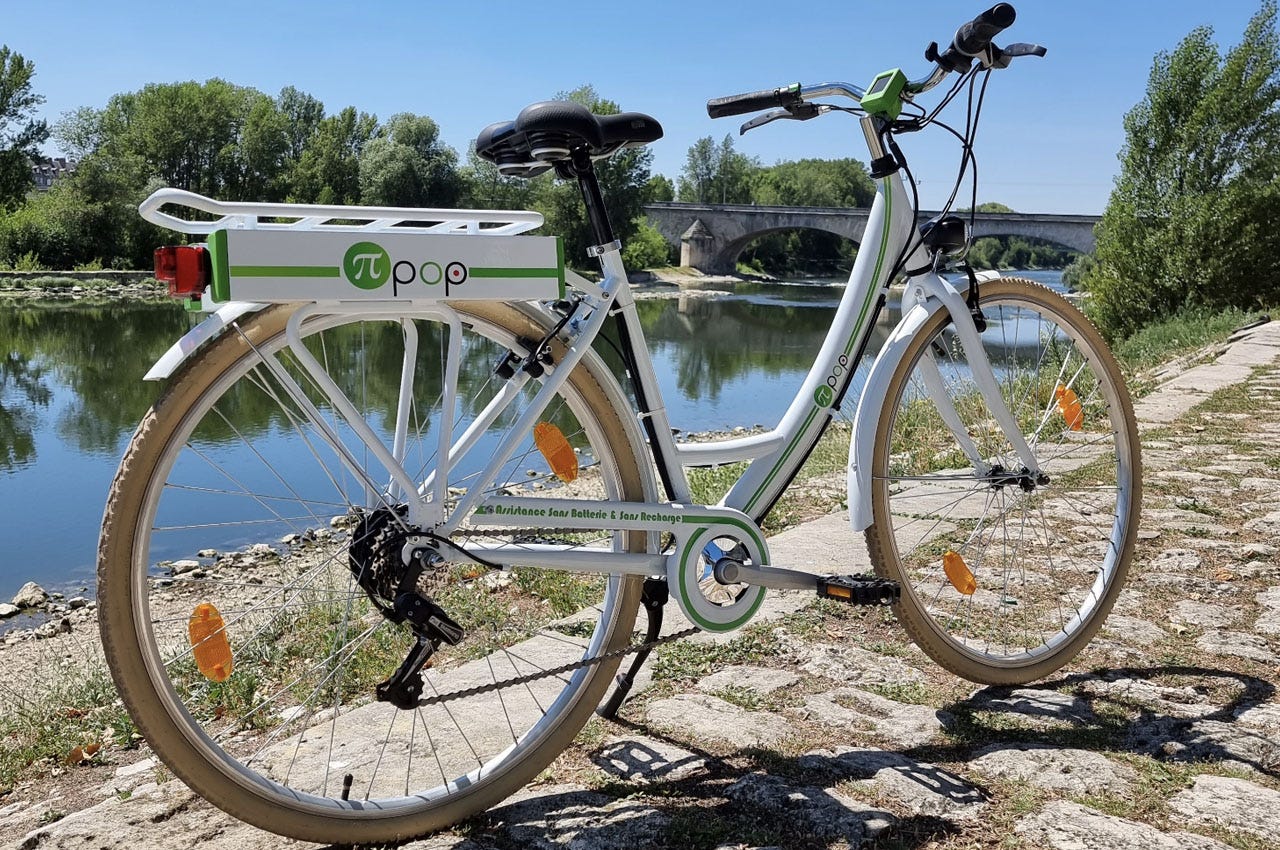🦎 This Species Reappeared After a Century
Shows How Resilient Nature Is
Today’s sustainable snapshot👇🏽
This Species Reappeared After a Century
Quiz Time!
Startup of the Week: Pi-POP
5 Sustainable Brands That I Recently Discovered
3 Stories That Lifted My Spirits This Week
🦎 This Species Reappeared After a Century
Have you heard of geckos? I hadn’t, till I came across this piece. Geckos are small, carnivorous lizards, but they are slightly different from lizards — they have no eyelids and external ears like lizards.
Now in the Galápagos Islands in the Pacific Ocean, Mares’s leaf-toed gecko (Phyllodactylus maresi) was thought to be extinct for a while. The only evidence of their presence was ancient subfossil bones dating back 5,700 to 8,540 years.
The reason for their extinction: invasive species of rats. Rats that were likely brought by pirates or whalers in the 17th or 18th centuries. These rats ate gecko eggs, disrupted nesting sites, and disturbed the entire ecosystem of the island.
In 2011, a few organizations came together to do something in this regard. Galápagos National Park, along with NGOs Island Conservation, the Charles Darwin Foundation, and The Raptor Center, launched a precision rodent eradication program. They targeted every invasive rat species.
Soon after the removal of rats, the ecosystem started reviving! The park rangers spotted a nocturnal gecko with distinctive leaf-shaped toe pads aka the Mares’s leaf-toed gecko.

People often imagine that nature may take a long time (20-50 years or more) to respond. But, when the correct pressures are removed, this is not always true,” Paula Castaño, Island Conservation’s impact program manager, told Mongabay in an email. “We often see these changes happening quickly, sometimes just in one or two years.
Shows how resilient nature is and how quickly it can take over. If we support it, it will revive quickly. If we don’t, it might take some time, but it will — the choice is ours!
⌛ Time for the quiz of the week
Note: Answer at the end of the newsletter. No one (including me) can see your response, so feel free to vote. 😉
✨ Startup of the Week: Pi-POP
This might look like a normal bike. But this is something between a bike and an e-bike!
Instead of batteries, this bike from French startup Pi-POP uses supercapacitors. These are quick-charging and long-lasting energy storage devices.
If you would like to dive deeper into the tech, here’s a relevant article.
This is how it works:
Whenever you pedal on easy terrain, roll downhill, or brake, it captures energy and stores it electrostatically, not chemically.
When you need more power, like climbing a hill or starting, that stored power kicks in.
A well-charged supercapacitor can handle about 50 m of elevation gain – enough for roughly 80 percent of European cities’ rides.
Unlike e-bikes, this one does not need any
Rare-earth mining
Lithium batteries
Overnight charging.
The supercapacitor has a lifespan of 10 to 15 years vs the typical five to six years for typical lithium packs, making it a sustainable and economical urban mobility alternative!
✅ 5 Sustainable Brands That I Recently Discovered
🇨🇭 PeelPack: Uses potato peels to make plastic-free containers.
🇬🇧 Resting Reef: Helps you convert your loved one’s ashes into a reef.
🇮🇳 Bambrew: Harnesses the power of plant fibers and pulp to create packaging material.
🇩🇪 Soapbottle: Soap bars that are designed to last at least two months.
🇺🇸 Mycocycle: Uses fungi to transform construction waste into low-carbon raw materials.
😹 3 Stories That Lifted My Spirits This Week
Smart Data Centers on a Budget
Estonian researchers have created mini data centers by linking old smartphones together, costing just $9 per phone. This innovative approach could significantly reduce electronic waste from billions of discarded phones while decreasing the need for expensive, energy-intensive data centers.
Heineken is cooling down its carbon footprint by heating up differently - replacing gas boilers with biomass, biogas, and solar-thermal systems across European breweries. Their Seville facility alone generates 68 MWh of stored heat, preventing 1,300+ metric tons of carbon emissions annually.
Duckweed Dives into Protein Market
Plantible Foods has launched its 100-acre Texas factory, "The Ranchito," now producing hundreds of metric tons of duckweed-based Rubi Protein. This nutrient-rich "water lentil" packs 40% protein with a nutty spinach flavor and might be the most abundant protein source on the planet.


Give that 💚 a little tap if this edition helped you learn something new about sustainability and climate change. Have a good weekend :)




